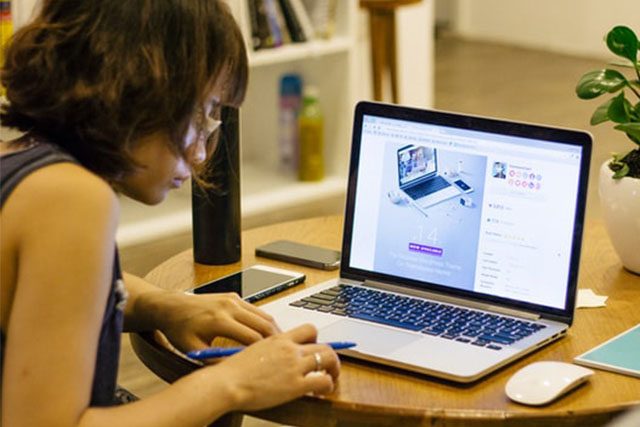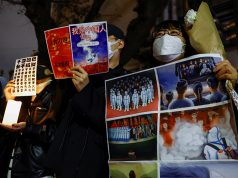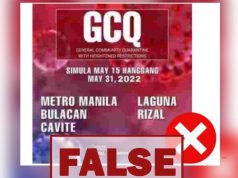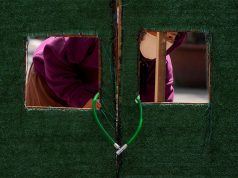Presidential spokesperson Harry Roque said that self-employed workers under industries that will be allowed to have onsite operations amid community quarantine can create their own identification card to be presented at checkpoints.
In a virtual press briefing on Wednesday, Roque shared that freelance workers or those who are not officially affiliated with any company can create IDs to prove that they are part of the sectors allowed to operate amid the modified enhanced community quarantine (MECQ) or the general community quarantine (GCQ).
“Unfortunately, dahil nga po ang pag-travel from GCQ to ECQ is only for industries na allowed, kinakailangan po talaga ng identification card,” Roque said.
“So sa mga self-employed, puwede naman silang gumawa ng card nila at ipakita nila kung ano talaga ang gagawin nila at saang industriya iyon. Pero indispensable po iyon, otherwise, mababalewala iyong ating quarantine kung lahat ng tao ay pupuwedeng lumipat,” he added.
The Palace previously declared that most of the regions will shift to GCQ by May 16 to upstart the economy, except for Metro Manila, Laguna and Cebu City.
These three areas will shift to MECQ from May 16 to 31, which is a less strict version of the currently imposed ECQ.
RELATED: What is modified, enhanced, general quarantine? Here’s how to tell the difference
Under MECQ, people are still expected to stay at home but those working in sectors authorized to open can go out, provided they present a pass proving they work in the approved industry.
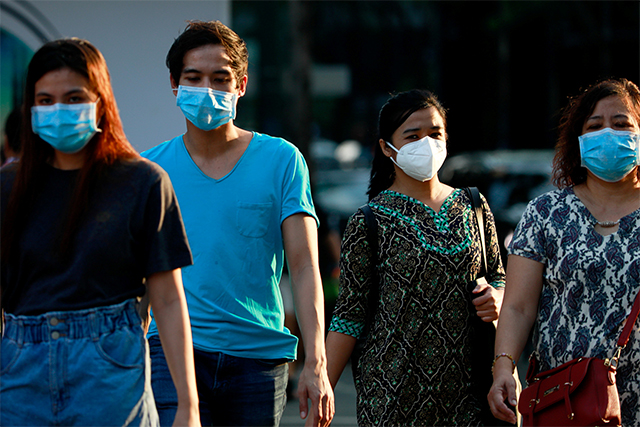
These sectors include certain manufacturing and processing plants and selected commercial establishments like clothing and accessories stores. All of them would have to operate with a maximum of 50% workforce.
RELATED: LIST: Businesses, activities allowed in all quarantine areas starting May 16
The Palace also said that certain safety protocols must be strictly observed regardless of the level of community quarantine imposed. These include a “no mask, no entry” policy and frequent sanitation and handwashing, among others.
Concerns
The guidelines on self-made ID cards earned mixed reactions from Filipinos, with some suggesting that it could mean a surge of fake ID cards since anyone could make one without specific requirements.
“Lahat gagawa ng sariling ID para makalabas! 2nd wave of virus is real!!” wrote a scared Facebook user.
“Madaling gumawa ng ID for the sole purpose of traveling from one point to another and pass all checkpoints… however, how would the government validate na hindi nagpapanggap ‘yang mga ‘yan??????” another online user wrote.
Others joked that they could now use identifiers such as “freelance dancer at TikTok” or be a worker of non-existing occupations like “Edi sa Puso Mo” or at “Krusty Krab Company.”
There were some Filipino, meanwhile, who questioned Roque’s suggestion and claimed that even a normal travel pass allegedly fails to be honored by checkpoint authorities, implying that a self-made ID card cannot make the cut.
“Putik ‘yan, ‘yung travel pass nga galing sa barangay hindi tinanggap ng ops. Pinakita na sa kanya na food delivery kami. Bumili lang ng cake. Hinuli pa (kami),” an online user commented.
There were other Filipinos who suggested that self-employed workers, in addition to presenting a self-made ID, can also bring supporting documents to further prove they are going to work.
“Siguro dapat may supporting documents din na ipapakita, like DTI (Department of Trade and Industry) certificate kung gagawa ng sariling ID card ‘yung mga self-employed,” said an online user.
What is a self-employed worker?
Self-employed workers are people who earn a living by working for themselves, not for a company or an organization. They usually look for work, rather than be assigned to do work.
These workers earn income “directly from one’s own business, trade, or profession rather than as a specified salary or wages from an employer,” Merriam-Webster notes.
Self-employed workers are not bound by company rules, policies and guidelines.
As such, they usually do not have an ID indicating their profession but others have licenses provided by the Professional Regulation Commission, such as real estate brokers and architects, among others.

